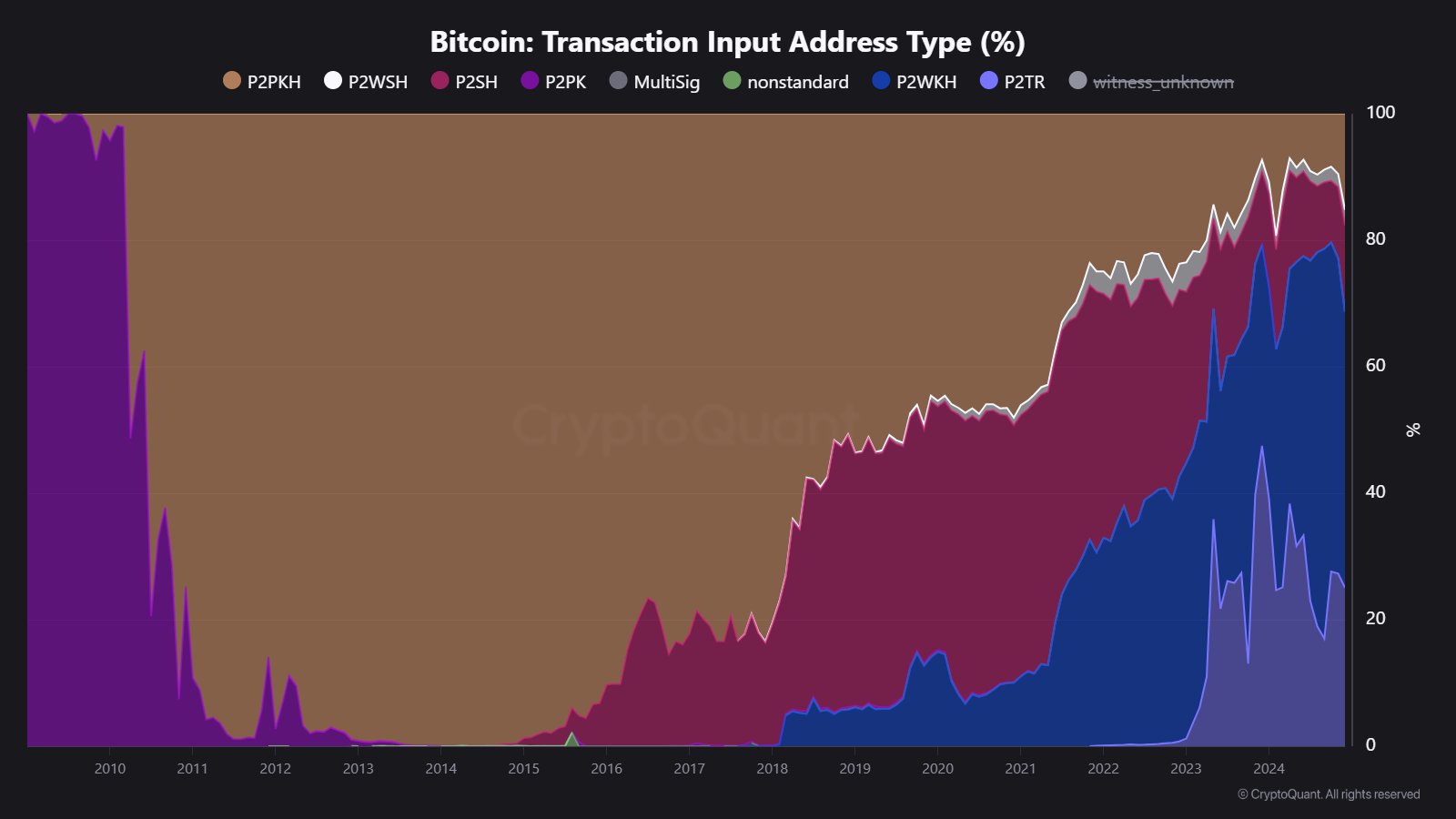The fast developments in quantum computing which sparked rising issues inside the cryptocurrency sector late final 12 months, notably relating to Bitcoin’s long-term resilience appear to have as soon as once more resurfaced.
CryptoQuant, an on-chain knowledge analytics platform, just lately highlighted these dangers in a sequence of posts on X titled “Quantum Computing is a Rising Danger for Bitcoin”.
The dialogue targeted on two important elements: Bitcoin mining safety and personal key vulnerabilities, each of which might face important challenges as quantum applied sciences progress.
Quantum Threats to Bitcoin Mining and Community Safety
Bitcoin’s proof-of-work (PoW) system depends on computational energy to validate transactions and safe the community. The SHA-256 hash operate, integral to Bitcoin mining, presently ensures sturdy safety by, stopping malicious actors from tampering with the blockchain.
Nevertheless, CryptoQuant warns that quantum algorithms, particularly leveraging superior algorithms equivalent to Grover’s, might considerably “speed up hash-solving processes.”
If quantum computer systems change into able to outperforming classical mining {hardware}, it might tilt the steadiness of energy in mining, enabling quantum-equipped miners to dominate block validation. This dominance wouldn’t solely disrupt community consensus but in addition doubtlessly compromise Bitcoin’s decentralized construction.
CryptoQuant emphasizes the significance of sustaining a big share of non-quantum computing hash energy within the community. A wholesome and numerous mining ecosystem would mitigate the dangers posed by any entity gaining disproportionate management through quantum expertise.
Whereas quantum supremacy in mining stays speculative at this stage, the continuing developments within the subject warrant shut monitoring by stakeholders, together with miners and builders.
Non-public Key Safety: Vulnerabilities And Diversifications
Past mining, quantum computing additionally presents dangers to BTC’s personal key safety. The Bitcoin community makes use of cryptographic methods to safe wallets and transactions, with private and non-private keys forming the premise of possession.
In response to CryptoQuant, Shor’s Algorithm might theoretically permit quantum computer systems to infer personal keys from public keys, thereby compromising pockets safety.
Notably susceptible are Pay-to-Public-Key (P2PK) addresses, the place the general public key straight serves because the pockets tackle. In distinction, Pay-to-Public-Key-Hash (P2PKH) addresses present a further layer of safety by hashing public keys.
Non-public Key Safety & Quantum Dangers
One other main concern is Shor’s Algorithm, which might, in principle, permit quantum computer systems to seek out personal keys from public keys. ‘Pay to public key’ (P2PK) addresses are most susceptible to quantum assaults, as the general public key serves straight… pic.twitter.com/q2NBvbwGLe
— CryptoQuant.com (@cryptoquant_com) January 7, 2025
Nevertheless, when BTC from these addresses is transferred, the general public secret’s uncovered, growing susceptibility to quantum assaults. CryptoQuant additionally noticed a notable improve in P2PKH tackle utilization, rising by 14% in current months.

Whereas the precise explanation for this shift stays unclear, it suggests heightened consciousness and warning amongst Bitcoin holders relating to quantum vulnerabilities.
Featured picture created with DALL-E, Chart from TradingView